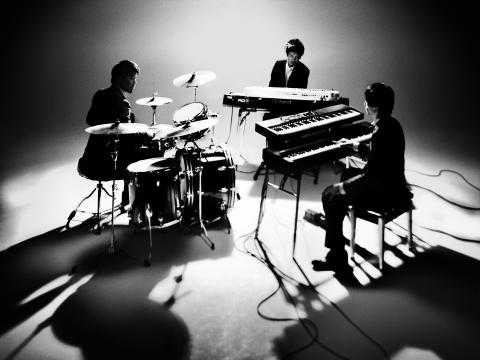According to the latest bit of slang, girls who get drunk and pass out in night clubs are now known as “corpses” (撿屍體), and the guys who take advantage of them are called “bone collectors” (撿骨師). Quite naturally, Zhongxiao East Road has been dubbed “Necrophilia Boulevard” (撿屍大道). Having read about all of this colorful language in the Liberty Times (自由時報), the Shida Neighborhood Association (師大三里里民自救會) has declared their grave fears that Shida Park will now turn into “Necrophilia Park” (撿屍公園). Moreover, they have placed special blame on foreigners, going so far as to post online photos of white guys sitting next to beer bottles and (gasp!) Taiwanese girls. Who cares. It’s the Internet.
Oh, right. The United Daily News (聯合報) cares. Apparently they think journalism is as easy as reprinting any scandalous tripe one finds online. In a May 11 article by reporters Guo An-jia (郭安家) and Peter Yuan (袁志豪), the paper reprinted one of the neighborhood association’s photos alongside an article, which begins, “The Shida Neighborhood Association has posted a number of photos online, claiming that Shida Park has become a 24-hour district, where foreign men are everywhere picking up Taiwanese girls. The park is full of beer bottles and cigarette butts. Recently, girls have been laying on the ground late at night, and local residents worry that it will turn into a ‘necrophilia park.’”
Since the report, Taipei police have made themselves a presence at Shida every night and posted signs around the park detailing violations of city codes and accompanying fines, from public disorderliness and excessive noisemaking to urinating in public. (Fines are NT$1,200 to NT$6,000 in each case.) The weekend following the article’s publication, police conducted random ID checks on several people in the park. Businesses were also affected. Jr Cafe, a bar-restaurant fixture on the street for more than 20 years, has been 24-hours for years but began closing at 11pm, as did its neighboring cafe Vino Vino Cafe, previously open till 3am.

Photo courtesy of The Wall
The Shida Neighborhood Association on its blog has repeatedly singled out foreigners, foreign laborers and the homeless as culprits in a disintegrating social order. It has also spearheaded the attack to close down the area’s clothing shops and restaurants. The association is empowered by the recent willingness of the Taipei City mayor’s office to follow up citizen complaints against businesses with fines and closure notices. This especially pertains to businesses open after 10pm and located on roads that are less than 6m wide. Late last year, city regulators declared open season on Shida, levying numerous fines on business owners for health, fire code and noise violations. By Lunar New Year, closure notices were served, and many businesses were given 10 days to shut down. The most drastically affected area has been Pucheng Street, Lane 13, also known as “International Food Street” (異國美食街). Once lined with restaurants, now all are shuttered save one, Out of India, which is fighting the city in court.
According to one Taipei City report, of 638 businesses in Shida area, 356 are in violation of zoning regulations. Clearly, there is a disconnect when it comes to enforcement, and there has been for a long time. The way to deal with it is not to send out enforcers en masse to destroy one of the city’s emergent cultural districts, mainly because certain residents are reactionaries. Shida has a hip, bohemian feel and, with the entire nation’s only youth-oriented night market and the richest underground music scene, it functions like Greenwich Village once did in New York City. For tourism, culture and the city’s image, destroying it would be a huge mistake. City Hall has so far been totally insensitive to all this.
On to music: This weekend’s top pick has to be Mouse on the Keys, a Japanese trio that plays music that sounds like jazz but is popular among aficionados of post-rock. Consisting of two keyboard players and a rock drummer, they perform an emotive, possibly even aggressive brand of instrumental music that’s had them paired on numerous occasions with Japanese guitar-based bands like Toe and Envy. Toe has been a big hit with Taiwanese audiences in the past. Mouse on the Keys is on Toe’s label, Machu Pichu Industrias, and Toe guitarist Takaaki Mino has produced some of the band’s material. College kids should dig it.
■ 8pm tonight, The Wall, B1, 200 Roosevelt Rd, Sec 4, Taipei City (台北市羅斯福路四段200號B1). Admission is NT$1,200
■ Swing dancing has begun to take off at the Village Cafe. Tonight it will be powered by the Hot Club of Formosa, a new group bringing together members of the Muddy Basin Ramblers, Dark Eyes and Blues Vibrations. The scene is tres cabaret
■ 8:30pm tonight, TAV Cafe, 7 Beiping E Rd, Taipei City (台北市北平東路7號), tel: (02) 3393-7377 X207. Admission is NT$350, one drink included

Google unveiled an artificial intelligence tool Wednesday that its scientists said would help unravel the mysteries of the human genome — and could one day lead to new treatments for diseases. The deep learning model AlphaGenome was hailed by outside researchers as a “breakthrough” that would let scientists study and even simulate the roots of difficult-to-treat genetic diseases. While the first complete map of the human genome in 2003 “gave us the book of life, reading it remained a challenge,” Pushmeet Kohli, vice president of research at Google DeepMind, told journalists. “We have the text,” he said, which is a sequence of

On a harsh winter afternoon last month, 2,000 protesters marched and chanted slogans such as “CCP out” and “Korea for Koreans” in Seoul’s popular Gangnam District. Participants — mostly students — wore caps printed with the Chinese characters for “exterminate communism” (滅共) and held banners reading “Heaven will destroy the Chinese Communist Party” (天滅中共). During the march, Park Jun-young, the leader of the protest organizer “Free University,” a conservative youth movement, who was on a hunger strike, collapsed after delivering a speech in sub-zero temperatures and was later hospitalized. Several protesters shaved their heads at the end of the demonstration. A

In August of 1949 American journalist Darrell Berrigan toured occupied Formosa and on Aug. 13 published “Should We Grab Formosa?” in the Saturday Evening Post. Berrigan, cataloguing the numerous horrors of corruption and looting the occupying Republic of China (ROC) was inflicting on the locals, advocated outright annexation of Taiwan by the US. He contended the islanders would welcome that. Berrigan also observed that the islanders were planning another revolt, and wrote of their “island nationalism.” The US position on Taiwan was well known there, and islanders, he said, had told him of US official statements that Taiwan had not

We have reached the point where, on any given day, it has become shocking if nothing shocking is happening in the news. This is especially true of Taiwan, which is in the crosshairs of the Chinese Communist Party (CCP), uniquely vulnerable to events happening in the US and Japan and where domestic politics has turned toxic and self-destructive. There are big forces at play far beyond our ability to control them. Feelings of helplessness are no joke and can lead to serious health issues. It should come as no surprise that a Strategic Market Research report is predicting a Compound